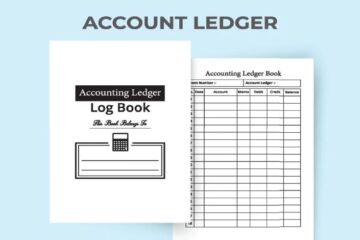Consumers and Challenges faced by consumers
Who is a Consumer?
A consumer is a person who pays for personal consumption of products and services. A consumer is a person who can decide whether to purchase an item, where to purchase it, and when to purchase it.
A consumer plays a significant part in the distribution chain since he or she is the final user and his or her requests motivate manufacturers to create items. The modern consumer faces a great number of obstacles.
Numerous new products are available for purchase, and the consumer must decide how to obtain the best value in return for his money, which leaves him in a condition of confusion. Being a smart consumer is essential; it enables a person to escape advertising baits and, as a result, develop a cautious shopping behavior.

Consumer Education
Consumer education teaches students about various consumer goods and services, including costs, what to anticipate as a consumer, and consumer rights and standards. In simple terms, consumer education is a process of helping a person in acquiring the knowledge and skills necessary for managing consumer resources.
[irp]
Through consumer education, one must gain the knowledge and skills necessary for managing consumer resources and controlling the forces that drive consumer decisions in order to be a smart and satisfied customer.
Importance Of Consumer Education
- It enables a person to acquire the knowledge needed to behave as an informed consumer.
- It educates the individual on where and how to acquire goods and services that meet personal and family demands.
- Customer education helps individuals appreciate the significance of being an informed consumer.
- It allows customers to understand consumer information.
- It helps the customer acquire the skills necessary to be an active and informed consumer.
- It fosters awareness of the specific role of the consumer and the role of society as a whole.
Rights Of The Consumer
Consumers have legal protections against harmful items. When consumers utilize things with which they are dissatisfied, it is their right to file complaints with the merchants or suppliers. The law mandates that producers label their products and refrain from creating products that are unhealthy to customers.
[irp]
The below are the eight universal consumer rights, which are general since they are considered human rights.
1. Right of Expression
Consumers have the right to express their dissatisfaction if the goods they purchased did not meet their expectations.
2. Right To Basic Needs
Consumers must have access to basic and essential goods at reasonable prices and of high quality.
3. Right To Information
Through advertisements and product labels, people are linked to a range of products available in the market. The law protects consumers from deceptive advertising and labeling. They are entitled to the factual information necessary to make an informed decision or consumption.
4. Right To Safety
Products must be well-designed to prevent any adverse effects on consumers.
5. Right To Redress
Buyers claim compensation when they experience problems with a service or product; in this circumstance, the issue can be rectified. If there is a need, the customer can be paid fairly.
6. Right To Consumer Education
People should have the right to develop the skills that will enable them to be educated and smart consumers.
7. Right To Choice
There are numerous options for purchasing goods and services. Buyers have the freedom to select whatever best suits them.
8. The Right To A Healthy Environment
This is the desire to live and work in an area that is neither risky nor hazardous, and that promotes fundamental human rights and well-being.
Challenges Facing The Consumer
Government and non-government organizations have fostered considerable effort to safeguard consumers.
The law stipulates that consumers must not be misled or damaged by the goods and services they purchase. Despite this, consumers continue to face numerous obstacles, ranging from incorrect information to fraud.
The below are some of the challenges consumers face:
1. Problem Of Adulteration
The issue of adulteration occurs when illicit manufacturers copy popular brand names. This is a critical challenge for customers. They find it tough to distinguish between authentic and counterfeit products.
2. Deceitful Advertisements
There are numerous goods available on the market that fulfill the same function. Manufacturers promote their products through advertising. In an effort to sell, they overstate the quality of their products instead of providing accurate information about the product’s quality.
[irp]
3. Unstable Supply
Consumers contend with an unstable supply. Most of the time, marketers are to blame for abnormalities. They hoard goods in order to sell them at a higher price at a later date, forcing consumers to sufferings.
4. Tricks played by Manufacturers and Sellers
This is a major issue for consumers: manufacturers or sellers engaging in unethical actions. Occasionally, sellers hoard commodities, making it impossible for consumers to obtain them. Manufacturers may entice consumers to purchase their products by falsely claiming that there is indeed a discount or that they have upgraded the quality of its products.
5. Wrong Weight And Measures
Commonly, standardized weights and specifications are not utilized in the marketplace. In an effort to deceive consumers, sellers will often lower or pad the contents of their measuring cups. Similarly, manufacturers will sometimes affix incorrect weights to packages in order to increase their profits.
6. Price Variation
In today’s competitive business environment, prices are not quite the same. Different locations charge different rates for the same good and services. In this instance, the consumer is unaware when he is buying with the correct price.
7. Inadequate informtion
Sometimes, customers do not have access to reliable information. Frequently, manufacturers alter their brand names and packaging without adequately telling consumers, which has a detrimental impact on the consumer.
8. Bad customer care
When they have issues with the things they’ve purchased, consumers frequently do not receive satisfactory explanations or fast remedy.
[irp]
9. Identity theft
Consumers are concerned with determining if a product is authentic, genuine, or counterfeit. There are several counterfeit, subpar, or inferior products and services on the market. In order to participate in unpleasant practices, manufacturers of sub-standard goods violate government and moral laws.
Even with trademarks, company names, Custom And Excise Duties, International Book Series Numbers (ISBN), Licensing Protections, Corporate Affairs Commission (CAC) Seals, NAFDAC (National Agency For Food And Drug Administration And Control) requirements, SON’s (Standards Organization Of Nigeria) inspection, and tampering, some of these counterfeit products create death, organ failure, injuries to the nervous system, environmental challenges or pollution, additional expenses, and fear among customers and patronizers.
Numerous manufacturers of goods and services supply or manufacture illegal or inferior services and consumables.
The oppressed consumer bears the burden of these unpleasant behaviors, as some of these makers of counterfeit goods present consumers with imitations that have all the characteristics of authentic goods and services, despite the fact that they are not true.
[irp]
Options For Consumer’s Refund and compensation (Redress)
Due to the malicious intention of some merchants to scam, deceive, and exploit customers, the government has established remedial options. There are consumer protection policies and systems in place due to the consumer’s guaranteed rights.
These alternatives for redress are:
The Establishment Of Regulatory Bodies
The Establishment Of Regulatory Bodies These are bodies authorized by law to foster and enforce standards, oversee price system, and guarantee quality.
This includes, among others, the Consumer Protection Council (CPC), the Standard Organization Of Nigeria (SON), the Copyright Commission (CRC), the Petroleum Products Pricing Regulatory Commission (PPPRC), the National Agency For Food And Drug Administration And Control (NAFDAC), and the Marketing Boards for price regulation of farm produce.
The Involvement Of Civil Courts
These are the legal systems with jurisdiction over petitions and dispute involving rights violations, harm, and damages incurred to others. Court officials, court registrars, bailiffs, Commissioners of Oath, Lawyers, Magistrates, and judges are the primary arbitrators. The court makes sure that justice is served, restitution is made, and compensation is paid.
In order to prevent people from misusing privileges, engaging in impunity, and committing illegal acts, they also fine, alert, restraint, detain, and jail violators.The issues associated with the judgment of cases by courts are the unending adjournment of cases, strike of court’s workforce, the multitude of injunctions, and the vocabulary or judicial technicalities that prolong matters unnecessarily or even deny fairness. Consequently, the old saying justice delayed is justice denied applies.
The police, the National Drug Law Enforcement Agency (NDLEA), the Customs, the immigration Service, the Nigerian Security and Civil Defence Corps (NSCDC), and in some instances the Nigerian Armed Forces. These organizations aid in the arrest and prosecution of criminals.
Frequently, they are authorized to mediate and settle purely civil disputes. Criminal cases are tried and resolved by the Court alone.
Business Association
Every field of industry, commercial, and manufacturing has unions, associations, or groups that regulate the abuses of power of members, reach a decision on matters pertaining to participants, policy violations, pricing, and consumer complaints, enforce government mandates, and maintain law and order.
The service professionals, such as attorneys, healthcare professionals, nurses, and engineers, can revoke, fine, unregister, and ban misbehaving persons, as well as invalidate or withdrawal of their professional licenses. As a preventive measure to others, producers can sanction infringing members and even seal their manufacturing units or factories.
[irp]
Method Of Seeking Redress
A consumer who is dissatisfied with the services provided by a manufacturer may file a complaint with the Consumer Protection Council, the adequate regulatory body (CPC).
- The very first step a dissatisfied consumer must take is to claim compensation from the manufacturer whose products or services he was unhappy with.
- If a consumer is unhappy with how a manufacturer resolved an issue, he or she has the right to file a complaint with the Consumer Protection Council for a formal hearing and resolution.
Consumer Protection Council (CPC) procedure for pursuing redress:
- The written complaint must be submitted to the committee of the consumer protection council at the state level.
- It must be noted that the alleged breach or conflict resulted from the use of any commodities, items, or services.
- The committee will investigate the complaint using the proper procedure.
- If the consumer is proven to be in the right, he or she will be able to file a civil action for compensation, refund or restitution in any court of competent jurisdiction.



